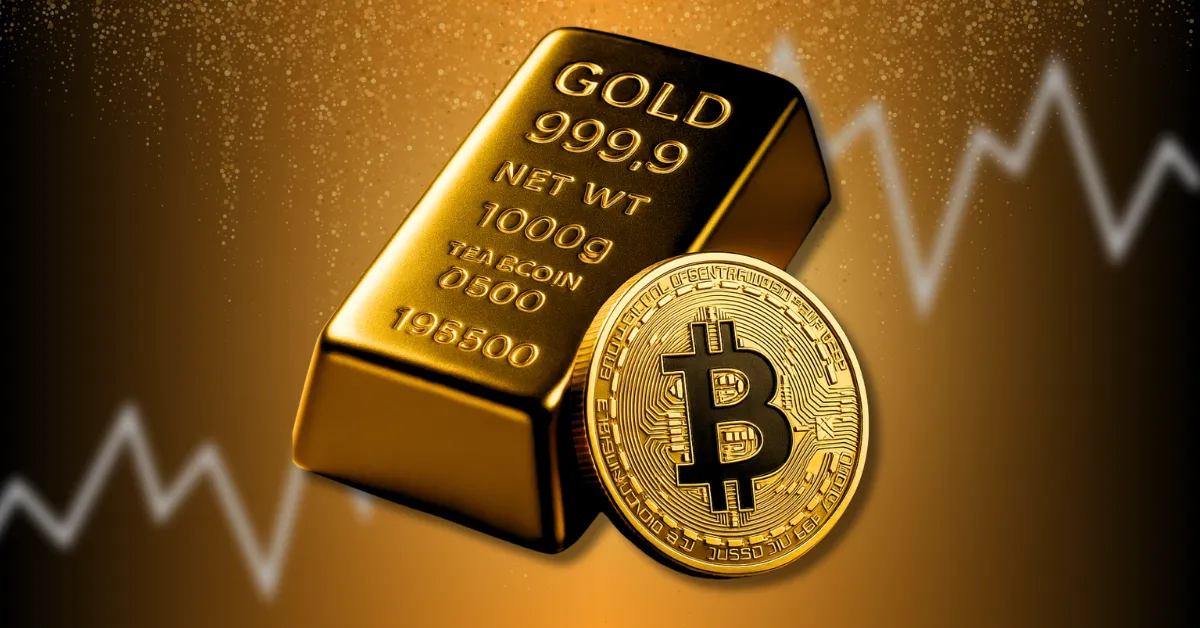
The global financial landscape is shifting dramatically, with traditional and digital assets vying for dominance as global reserve currencies. In 2025, gold and Bitcoin have emerged as frontrunners in this new economic paradigm. Here’s an in-depth look at their growth and potential for the future.
The Rise of Gold in Global Reserves
Gold has long been a trusted asset for nations seeking stability in their reserves. Recent developments led by BRICS nations—an economic alliance between Brazil, Russia, India, China, and South Africa—have reignited interest in gold. In their push for dedollarization and greater financial independence, BRICS countries have steadily increased their gold reserves.
According to market data, gold’s share as a global reserve currency rose by 3% in the first quarter of 2025, reaching 24%. This is the highest percentage in three decades, signaling a strong move away from reliance on the U.S. dollar, which saw its global reserve share drop by 2% to 42%, the lowest since the 1990s.
Moreover, gold surpassed the euro in 2024 to become the second-largest global reserve asset. This momentum continues to be fueled by digitization efforts, particularly through blockchain technology. Tokenized gold, valued at approximately $2.59 billion with a daily trading volume of $492 million, is leading this modernization, driven by key assets such as Tether Gold (XAUT) and PAX Gold (PAXG).
Bitcoin: A New Digital Reserve Asset
Often referred to as “digital gold,” Bitcoin is quickly solidifying its position as a global reserve currency. Institutional investors, retail traders, and even nation-states are increasingly adopting Bitcoin as a hedge against inflation and economic instability.
Federal Reserve Chairman Jerome Powell has acknowledged Bitcoin’s potential, suggesting its role as a valuable digital asset. Prominent financial institutions like JPMorgan have echoed this sentiment, with analysts setting a midterm price target of $126,000 per Bitcoin. Such forecasts strengthen the confidence of corporations and governments in implementing strategic Bitcoin reserves.
With its scarcity and efficiency in facilitating payments, Bitcoin offers significant advantages over gold. These qualities ensure its organic growth as a reserve currency, particularly as more countries follow the lead of early adopters like El Salvador.
The Future of Reserve Currencies
The collision of traditional and digital assets is reshaping the world’s financial systems. While gold remains a historically trusted reserve asset, Bitcoin’s modern, decentralized attributes present a compelling alternative. Investors and policymakers should closely watch this dynamic as it unfolds in the coming years.
If you’re interested in exploring Bitcoin or tokenized gold as investment opportunities, consider platforms such as Tether Gold or Binance, where you can trade these assets securely.



